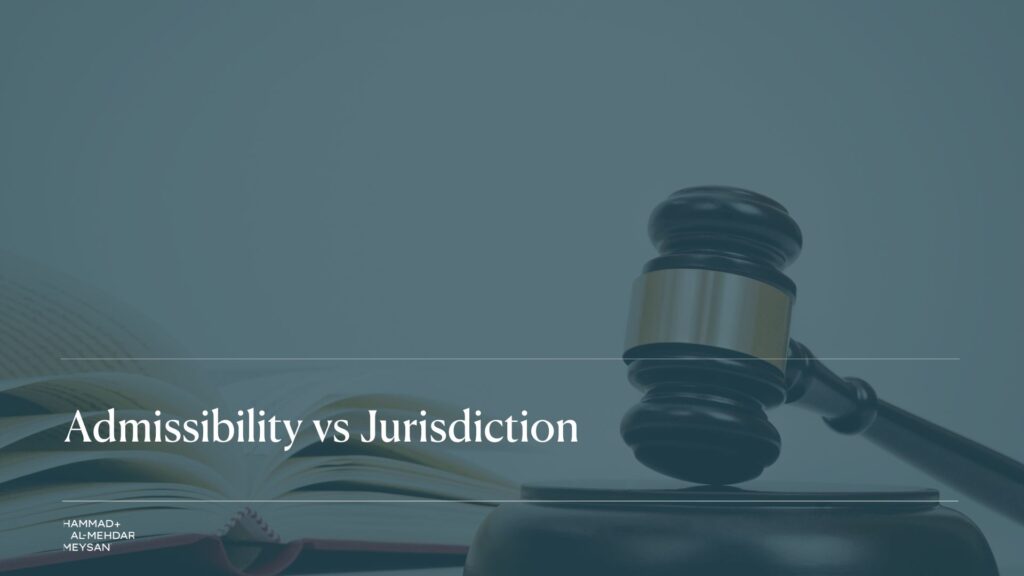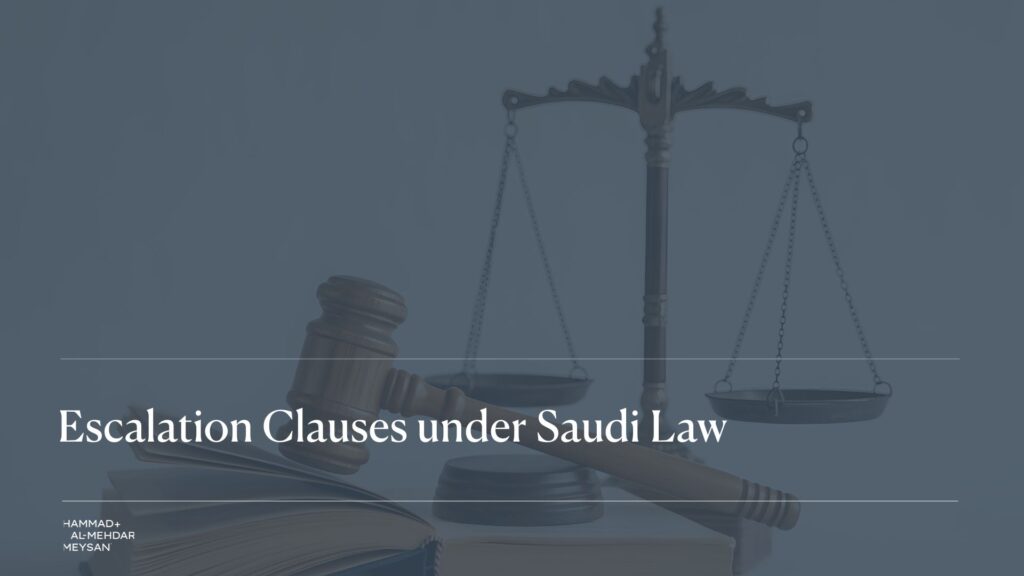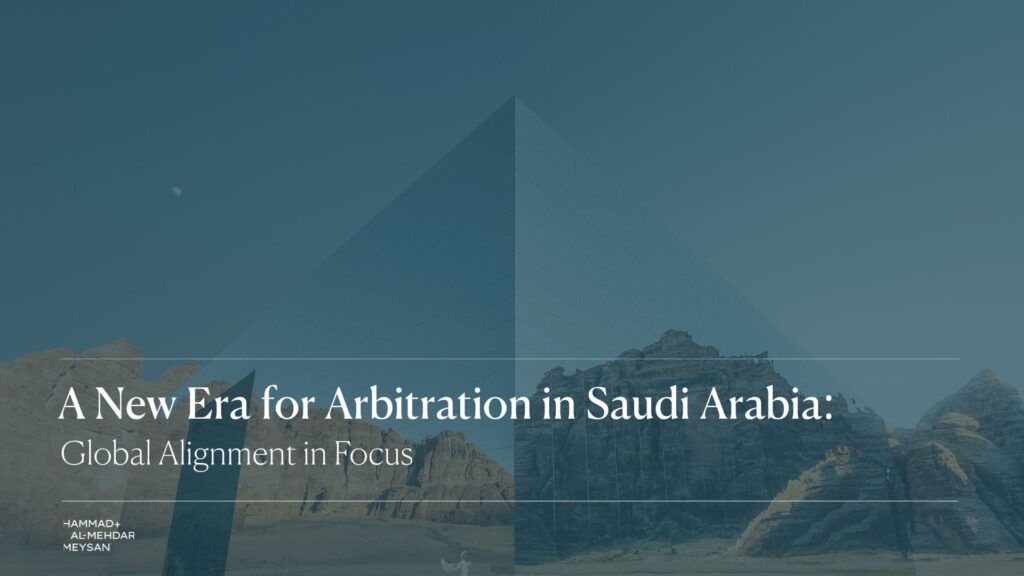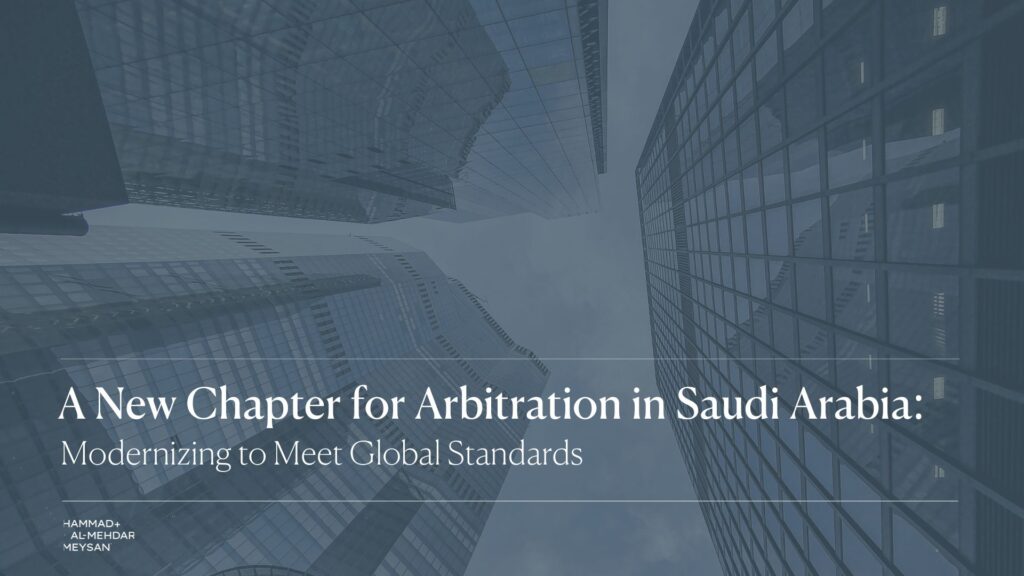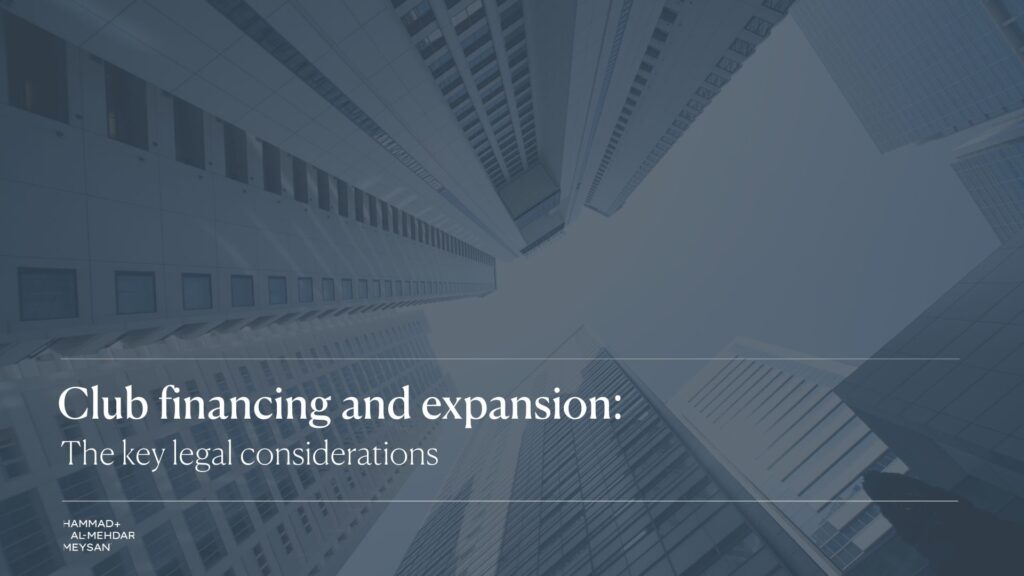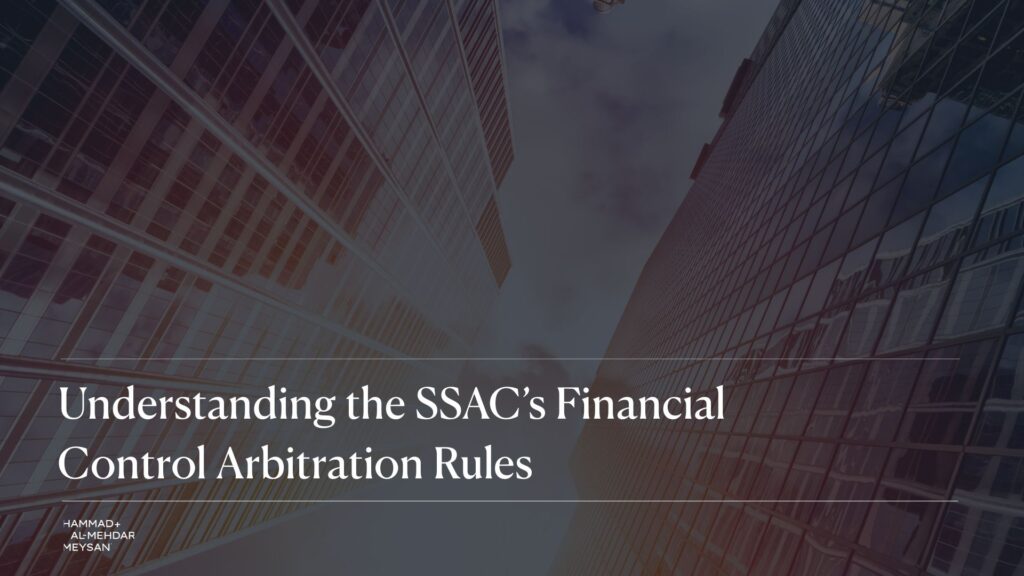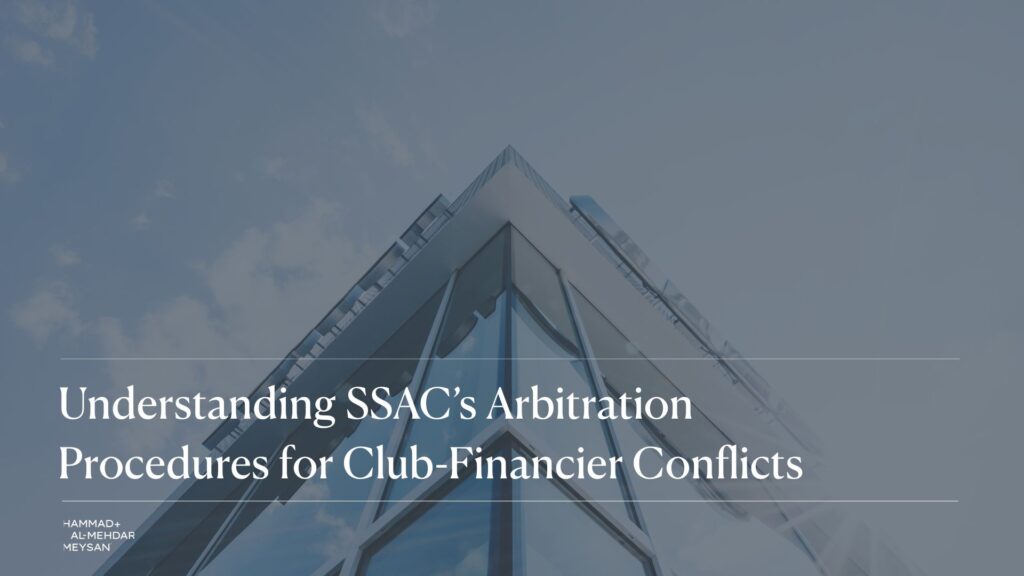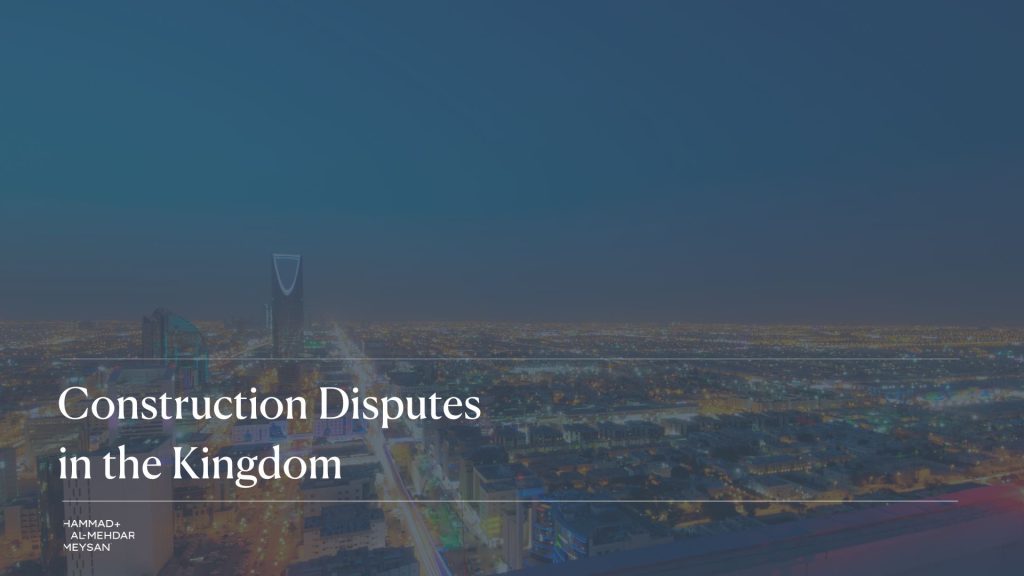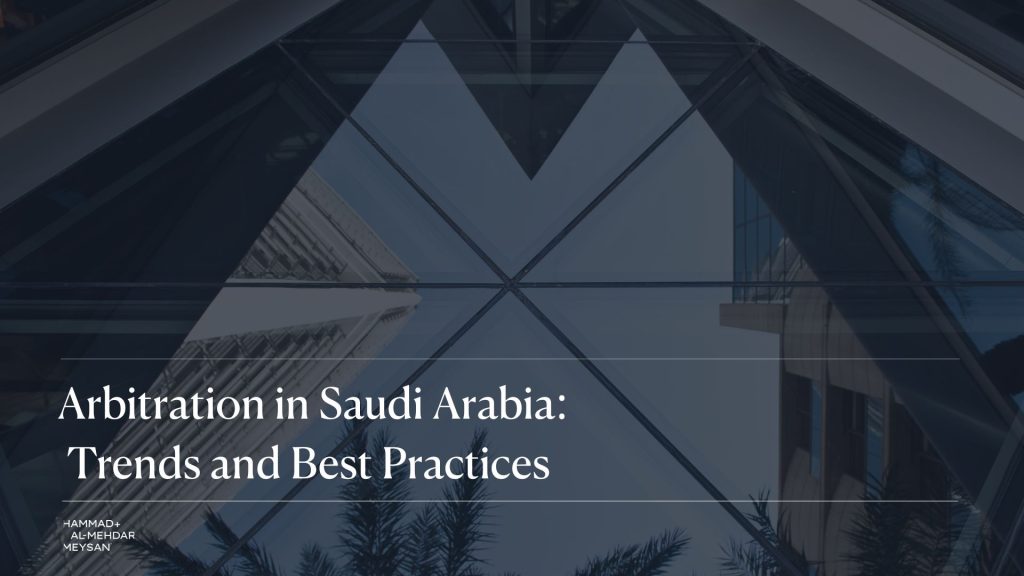The Kingdom of Saudi Arabia (the “Kingdom”) is preparing to usher in a new era in its arbitration framework through the release of a draft Arbitration Law for public consultation. The initiative marks the most comprehensive reform of the system since the 2012 Arbitration Law (Royal Decree No. M/34) and forms part of the Kingdom’s wider Vision 2030 strategy to enhance investor confidence and the rule of law. Following a July 2025 resolution of the Council of Ministers calling for arbitration reform, the draft law, issued through the national competitiveness center, seeks to align Saudi practice with international norms and reinforce the Kingdom’s position as a regional center for commercial dispute resolution.
Over the past decade, Saudi Arabia has steadily built credibility as an arbitration-friendly jurisdiction. The 2012 law, which drew heavily on the UNCITRAL Model Law, introduced party autonomy and procedural predictability. The creation of the Saudi Center for Commercial Arbitration (“SCCA”) in 2017 further professionalized case administration, and Saudi courts have increasingly demonstrated deference to arbitral awards, including the enforcement of foreign awards under the New York Convention. The new draft law aims to consolidate this progress, remedy residual ambiguities, and bring the legal framework in line with leading arbitral seats worldwide.
1. Clearer Rules on the Law Governing the Arbitration Agreement
A long-standing source of uncertainty under the 2012 regime was the absence of explicit guidance on which law governs the arbitration clause itself. The draft law resolves this by granting parties full freedom to select that governing law; failing such choice, the law of the seat of arbitration will apply by default. This aligns Saudi practice with the UK Arbitration Act (as amended 2024) and similar global reforms, reducing interpretive disputes and increasing predictability. In effect, parties can now determine in advance how issues such as validity, separability, and interpretation of the arbitration clause will be assessed, minimizing procedural surprises.
2. Expanded Arbitrator Eligibility and Statutory Immunity
The proposed law removes outdated constraints on who may act as an arbitrator. The prior requirement that the presiding arbitrator or sole arbitrator hold a Sharia or law degree has been deleted. Under the new regime, any person with full legal capacity and a clean criminal record may serve, regardless of nationality or academic background. This widens the talent pool to include international practitioners and technical experts, a key development for complex commercial or construction disputes.
Equally significant is the introduction of qualified immunity for arbitrators. Except in cases involving bad faith, fraud, or gross negligence, arbitrators will be protected from personal civil liability arising from their decisions. This mirrors international best practice and should encourage seasoned arbitrators to accept Saudi appointments without apprehension of litigation. The draft further confirms the requirement of an odd-numbered tribunal and provides clear, time-bound procedures for challenging or replacing arbitrators, ensuring both independence and efficiency.
3. Joinder and Consolidation in Multi-Party Disputes
For the first time, Saudi arbitration law will expressly recognize joinder of additional parties and consolidation of related proceedings. Where a third party is bound by the same arbitration agreement, it may be joined to the existing arbitration subject to due process safeguards. Similarly, separate arbitrations can be merged into a single proceeding with the consent of all parties. These mechanisms are particularly relevant in construction, infrastructure, and consortium disputes, where interconnected contracts and overlapping parties are common. By adopting these tools, long standard under major institutional rules, the draft law promises greater procedural economy and consistency in outcomes.
4. Stronger Interim and Emergency Relief Mechanisms
The draft law empowers arbitral tribunals to order interim measures, such as asset freezes, evidence preservation, or injunctive relief, and mandates Saudi courts to enforce such measures within 15 days. This closes a major gap in the current regime, where tribunals lacked clear statutory authority to grant enforceable interim orders.
In a further leap, the law expressly recognizes emergency arbitrators, authorizing their orders to have the same binding effect as interim awards. Parties may therefore seek urgent protection before the full tribunal is constituted, with confidence that local courts will give effect to such orders. This alignment with the UNCITRAL Model Law (2006) and leading institutional rules strengthens Saudi Arabia’s reputation as a responsive and reliable arbitral seat.
5. Digitalization and Procedural Modernization
Reflecting the global move toward technology-driven dispute resolution, the draft law formally endorses electronic communications, digital signatures, and virtual hearings. Notices sent by email or text message will be deemed valid service, and awards may be signed electronically, even if the arbitrators are abroad, while still being considered issued at the Saudi seat.
Tribunals are also empowered to issue partial or interim awards resolving discrete issues before the final decision, an innovation that accelerates resolution in complex cases. Furthermore, the draft law permits virtual hearings, remote witness testimony, and flexible language selection. Arabic remains the default if not agreed otherwise, but parties are free to choose any language for proceedings. Collectively, these provisions ensure that arbitration in Saudi Arabia operates on par with the most modern international practices.
The law also clarifies cost obligations: parties are jointly responsible for arbitral fees, and tribunals may withhold awards pending payment. Courts may compel release of an award once fees are settled, discouraging tactical non-payment.
6. Streamlined Annulment and Enforcement Framework
The annulment process will remain grounded in UNCITRAL principles but with key clarifications. Awards may be set aside if the tribunal disregards the parties’ chosen substantive law or if the award contravenes Sharia or Saudi public policy, now expressly codified. More innovatively, courts may pause annulment proceedings for 60 days to allow the tribunal to correct formal defects, such as missing signatures, without altering the substance. This pragmatic approach preserves awards that would otherwise be invalidated for technical flaws.
Enforcement reforms are equally impactful. Either party may now appeal a court’s enforcement decision, whether granting or refusing enforcement, to the Saudi Supreme Court, ensuring uniform jurisprudence. Enforcement judges may also suspend proceedings for 60 days to permit rectification of technical errors, reinforcing a pro-enforcement stance.
Importantly, the draft affirms that arbitral awards (domestic or foreign) carry res judicata effect, subject only to narrow public-policy exceptions. Combined with the designation of the Commercial Court of Appeal in Riyadh as the primary supervisory authority for international arbitrations, these changes centralize expertise and enhance procedural consistency.
7. Practical Implications for Businesses and Practitioners
Once enacted, the law will markedly increase the attractiveness of Saudi Arabia as a seat of arbitration. Its convergence with the UNCITRAL Model Law and other modern statutes will simplify cross-border practice, providing familiar procedures and reliable enforcement. Key benefits include:
- Certainty and predictability through clear conflict-of-laws rules.
- Access to a broader pool of arbitrators, enhancing neutrality and expertise.
- Efficient management of complex disputes via joinder and consolidation.
- Effective emergency relief within the arbitration framework itself.
- Reduced procedural risk through curative mechanisms for defective awards.
- Digital flexibility enabling remote participation and faster communication.
For foreign investors, these features translate to lower dispute-resolution risk and greater confidence in Saudi enforcement mechanisms.
8. Preparing for the New Framework
To take full advantage of the upcoming regime, parties should:
- Re-examine arbitration clauses to expressly specify the governing law of the arbitration agreement and consider provisions enabling joinder or consolidation.
- Select appropriate institutional rules, such as the SCCA 2023 Rules or ICC Rules, which already incorporate many of the procedures the new law recognizes.
- Plan for interim measures, including local counsel support for quick enforcement.
- Choose arbitrators strategically, balancing international expertise with awareness of Sharia-based public policy.
- Monitor final enactment and any accompanying implementing regulations, as refinements may occur after the consultation period.
Saudi Arabia’s forthcoming Arbitration Law represents a decisive modernization of its dispute-resolution framework. It blends global best practices with domestic legal values, producing a regime that is efficient, technologically current, and firmly supportive of arbitral autonomy. For businesses operating in or with the Kingdom, the reform signals a more predictable, investor-friendly environment and underscores Saudi Arabia’s ambition under Vision 2030 to serve as a premier regional hub for arbitration.
With these reforms, arbitration in Saudi Arabia is set to become faster, fairer, and more consistent with international expectations, while preserving the integrity of Sharia and national public policy. The result is a balanced and forward-looking system that strengthens confidence among both domestic and international stakeholders that their disputes can be resolved independently, efficiently, and conclusively in the Kingdom.
